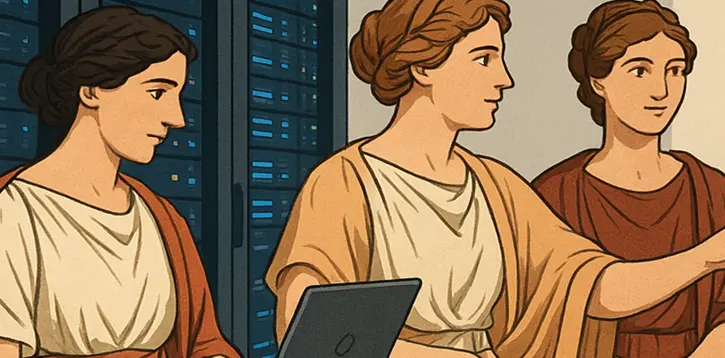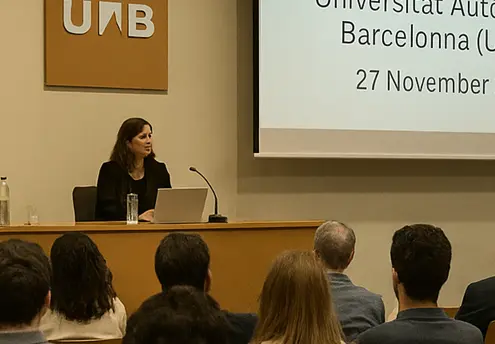Hands-on formats tailored to the Ancient World.
Workshops & Seminars
Hands-on sessions where participants work directly with primary sources and digital tools. Topics
range from text editing and epigraphic transcription to palaeography, archaeological datasets,
and ancient languages. Each workshop emphasizes evidence-based teaching methods, encouraging
participants to test approaches, reflect on results, and exchange strategies that can be
transferred to their own classrooms or research contexts.
Inclusive Resources
We design teaching materials with accessibility as a starting point rather than an add-on. This
includes scaffolded lesson plans that break down complex tasks into manageable steps, checklists
to support executive function, and multimodal content such as alt-texted figures and captioned
clips. Templates for accessible assignments allow educators to adapt activities to diverse
cognitive profiles and classroom realities.
Networking & Mentoring
CIAW provides spaces for peer exchange, especially aimed at early-career scholars, teachers, and
independent researchers. We foster collaborative groups where methods can be shared, feedback
offered, and joint publications developed. Mentoring initiatives connect junior academics with
more experienced colleagues, with a focus on pedagogical practice and the dissemination of
teaching artefacts that often remain invisible in traditional research outputs.
Experimental Projects
We explore responsible ways of integrating AI and gamification into Ancient Studies classrooms.
Rather than relying on technological spectacle, our focus is on game-based activities that
foster engagement, critical thinking, and collaboration. Examples include role-playing debates
based on historical sources, point-based challenges for text analysis, or reconstructive tasks
framed as collective missions. These projects test how playful approaches can enhance
interpretation, retention, and inclusivity in learning environments.
Ethics & Methods
Digital tools are never neutral. CIAW organizes forums and produces guidelines that highlight
issues of transparency, data provenance, licensing, and bias. We encourage critical reflection
on the promises and limits of AI, asking not only what these tools can do but also what they
risk obscuring. By documenting methods and making assumptions explicit, we help build a culture
of accountability in the digital humanities and Ancient Studies.
Open Publishing
All outputs are made available as open access whenever licensing permits. Beyond journal
articles, this includes reproducible workflows, annotated examples, and adaptable teaching
packs. Our aim is to reduce duplication of effort and empower educators and researchers to
integrate tested methods into their own practice. Open publishing also reinforces transparency
and allows the wider community to scrutinize, improve, and reuse our work.






